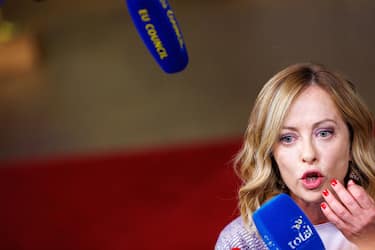Born in 1961, he is a socialist who, as President of Portugal, implemented a program to relaunch the capital Lisbon and the country. He resigned in November 2023 due to some scandals surrounding his government, due to alleged irregularities in concessions related to lithium mines and green hydrogen projects.
A passion for puzzles will come in handy for António Costa, the former Portuguese prime minister and new president of the European Council, who will now have to rely on his best qualities, such as pragmatism and brilliant negotiating skills, to keep the European Union together. The sensibilities of the heads of state and government of the old continent. Born in 1961, António Costa is a socialist and began his political career at a very young age, joining the Juventude Socialista, a youth group of the Socialist Party, at just 14 years old, when Portugal had just experienced the Carnation Revolution and the return to democracy. after the Estado Novo dictatorship that had lasted more than 40 years.
Origins and Beginnings
Costa is the son of a hardline communist writer, born in Mozambique to Catholic parents from Goa, a former Portuguese colony in India, and Maria Antonia Bala, one of Portugal’s first female journalists. He was a member of the Lisbon City Council in 1983, and in 1993 he was a candidate for municipal elections in Loures, a town in the outskirts of the Portuguese capital. Costa lost the election by a few dozen votes, but remained a popular choice, displaying the pragmatism that has always accompanied him in politics: he organized a race between a donkey and a Ferrari along one of the city’s main roads to demonstrate communication problems with Lisbon. The result was that the donkey won. However, the defeat did not affect his political career: in 1995 he joined the government of António Guterres, the current Secretary-General of the United Nations, as Under-Secretary-General for Relations with Parliament. In 2004 he became a Member of the European Parliament and Vice-President of the European Parliament, and returned to his homeland the following year to become Minister of the Interior in the Sócrates government. In 2007 he was elected Mayor of Lisbon, where he remained for eight years, relaunching the city.

Read also
European Council: Approves the appointments of von der Leyen, Costa and Kallas
Relaunch of Portugal
He became prime minister after the 2015 elections, inheriting a country saved from bankruptcy thanks to an €83 billion loan from the European Union, the International Monetary Fund and the European Central Bank and placed under post-programme supervision because it had not yet paid its debts. He avoids a clash with Europe and decides to continue on the path of investments, reintroducing some previously abolished social protection measures, increasing salaries and pensions, but without ever deviating from the rigor imposed by the Troika. The economy benefits from this: during his years in government, Lisbon’s public debt to GDP ratio fell from 131.2% in 2015 to 99.1% in 2023, and average annual GDP growth reached +1.2%. However, in November 2023, Costa resigned after an investigation targeting some members of his government for alleged irregularities in concessions related to lithium mines and green hydrogen projects. But the investigation reveals some errors, even glaring ones, starting with the confusion that investigators created between Prime Minister Costa and one of his ministers who bears the same name, Economy Minister António Costa Silva. He confirmed his resignation, however, declaring that he had “nothing to do with the facts.” However, his consensus in the country remains in practice: in the last European elections, the Socialists won 32.08% of the vote, becoming the country’s leading party ahead of the Democratic Alliance led by Prime Minister Luis Montenegro.






Leave a Reply